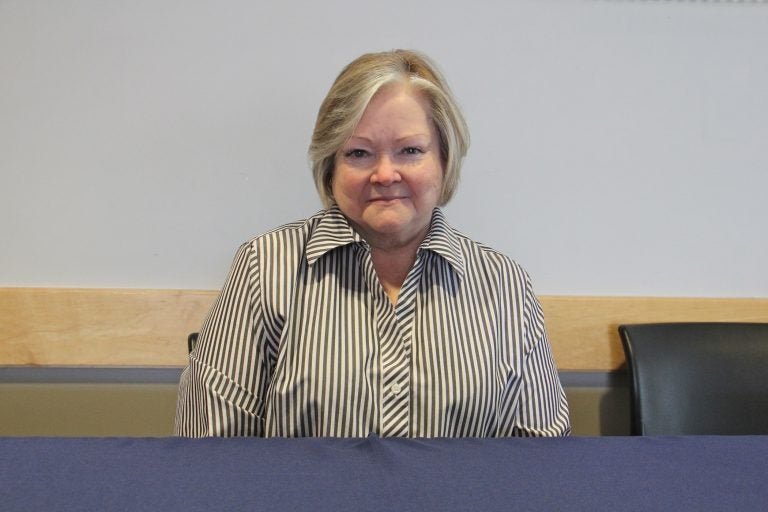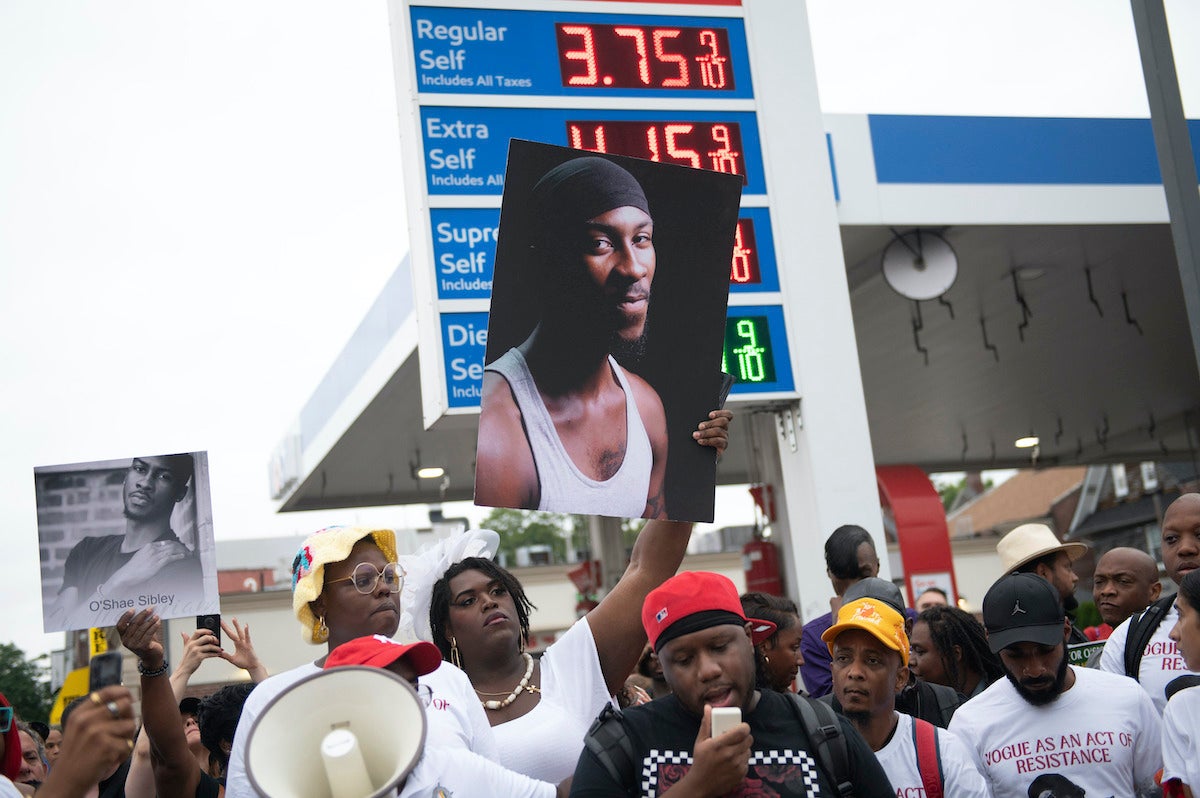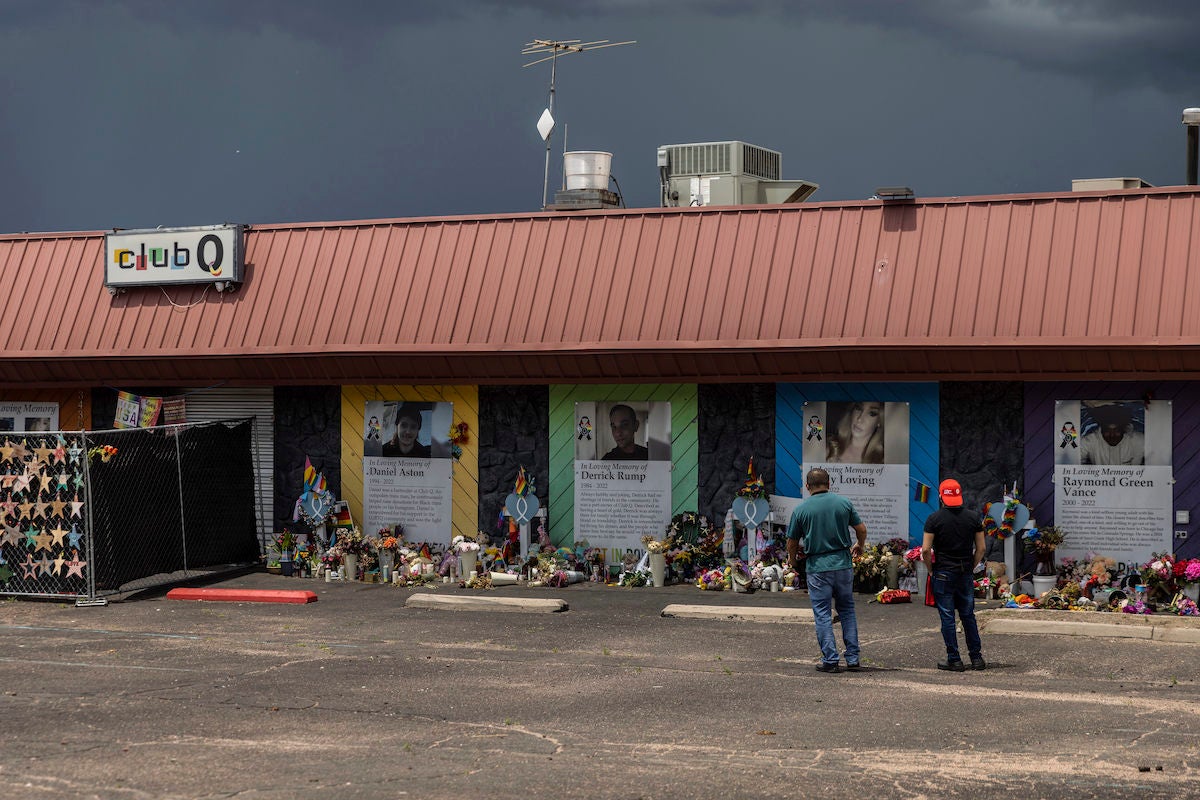Matthew Shepard’s mother guides police on handling hate crimes at Philly summit
Speaking in Philadelphia, Judy Shepard acknowledged progress and worried about complacency as violent hate crimes hit a 16 year high.

Judy Shepard, mother of Matthew Shepard, who was murdered in 1998 because he was gay, spoke at the National Constitution Center to a summit of law enforcement officials on hate crimes and domestic terrorism. (Emma Lee/WHYY)
In 1998, two men brutally beat 21-year-old Matthew Shepard in Laramie, Wyoming and left him tied to a fence in freezing temperatures. He would die days later. The attack is one of the most notorious hate crimes against a member of the LGBTQ community.
Still, attitudes toward the queer community changed for the better, according to Shepard’s mother, Judy.
“After that, Will and Grace was in everybody’s living room, the gay community attained a level of respect and awareness in the general public that had not been achieved before,” she told a room of 200 regional law enforcement officials gathered in Philadelphia.
Shepard was the keynote speaker at a summit organized by the Anti-Defamation League, the U.S. Attorney’s Office, and other partners to discuss best practices when investigating hate crimes and domestic terrorists.
“In the last 20 years, yes, there’s been great progress,” she said, cautioning against becoming complacent.
“In the last few years, there’s been a turnaround — very scary, absolutely frightening — of all the ground we’ve covered,” Shepard said, not only for the LGBT community but for all marginalized groups.
Organizers of the conference said the turnaround is why they hosted the event.
Just this week, the FBI released its annual report on hate crime statistics. Last year, fewer of these crimes were reported but violent hate crimes reached a 16-year high.
These voluntary statistics are particularly worrisome to victim advocates who say these numbers don’t paint the full picture and are likely higher.
Shepard wondered if the Obama presidency might have made some people take the progress made over the last 20 years for granted.
After all, she said, Obama extended federal hate crime protections to include members of the LGBTQ community in 2009. More importantly, Shepard said, Obama carried a strong message for the country.
“That behaving in a hateful manner is unacceptable, socially unacceptable,” she said. “We’re not going to tolerate that — law enforcement wouldn’t tolerate that, the public wouldn’t tolerate that.”
Shepard blames the rise in violent hate crimes on social media and the current administration’s rhetoric.
“It’s just been horrifying to watch that all the marginalized communities are being revictimized in this administration and they don’t seem to care,” she said. “The haters seem empowered, encouraged even.”
Still, no matter the reason for the hate crimes, local police and prosecutors are left to deal with these crimes in their backyard.
“We’ve had problems over the years even identifying hate crimes,” said Louis Lappen, deputy U.S. Attorney for the Eastern District of Pennsylvania. “People don’t always report them as hate crimes and law enforcement has to learn how to deal sensitively with victims of these types of crimes.”
Attendees at the conference asked Shepard what law enforcement got right when handling her son’s case and what officials could replicate for current cases.
Shepard recommended appointing a police liaison of marginalized communities.
After her speech, attendees broke off into closed sessions where they discussed how to identify hate crimes, best support victims, and go over case studies of exemplary cases.
WHYY is your source for fact-based, in-depth journalism and information. As a nonprofit organization, we rely on financial support from readers like you. Please give today.





